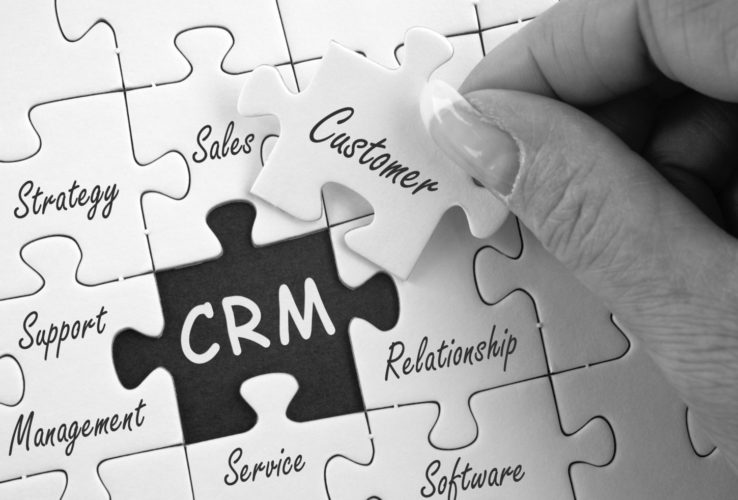Today, businesses prefer to replace outdated technology with cloud-based Manufacturing ERP software. It’s a cutting-edge solution that gives businesses greater chances for systematical expansion. Using cloud-based modules for enterprise resource planning (ERP) software can help manufacturers reach the next level of business growth. It helps businesses to promote internal communication and gain a thorough understanding of supply chain management practices. Apart from these, such robust Cloud ERP for the manufacturing industry allows companies to reduce their operational costs and cut down on complex tasks. This blog aims to create intensive awareness about how implementations of cloud-based manufacturing ERP software help to elevate the production rate and sales opportunities.
Cloud ERP Software For The Manufacturing Industry
The manufacturing sector uses ERP software to automate entire business operations. It creates a centralized database that eliminates the requirement of maintaining paper documents. Manufacturers have several business operations to manage, including raw material procurement and the introduction of recently transformed products. The ERP offers a single dashboard to organize all business data at one location. This assists businesses in coordinating with working employees without interruptions.
Your manufacturing cloud-based ERP can help you safeguard company information from unauthorized access. Additionally, the cloud ERP gives your company more flexibility because it can be accessed from any location. You can also scale your cloud ERP solution as your business grows. This is, again, something beneficial for your manufacturing business.
Signs Your Manufacturing Business Needs An ERP Solution
Here are the signs that indicate the high time it takes to update a specialist manufacturing ERP.
Your business operations are manual and error-prone: A modern manufacturing ERP automates tasks, streamlines workflows, eliminates documentation, reduces errors, and optimizes productivity.
Lack of communication between your departments: ERP provides a centralized platform for all departments and a single source of truth for operational data, thereby enhancing communication and collaboration across the organization.
Your production planning and demand forecasting are inefficient: ERP systems can optimize inventory management, optimize scheduling, and provide complete transparency throughout operations, thereby enabling you to maximize output and fulfill orders on time.
You meet challenges in monitoring production costs: An ERP system offers real-time cost insights, which can be used to optimize your bottom line, identify areas for improvement, and reduce expenses.
Core Benefits Of Cloud ERP For The Manufacturing Industry
Allow for real-time access to business information: With the appropriate implementation of enterprise resource planning (ERP) in manufacturing companies, manufacturers can effortlessly monitor business information from a single source.
Enable to improve communication: Entrepreneurs can seamlessly communicate and collaborate with employees to remain informed about manufacturing and other business operations through the cloud-based ERP.
Simplifies accounting tasks: The management of financial tasks through a single database provides the organization with accurate expense data. It assists entrepreneurs in the maintenance of their budgets.
Help track inventory with more accuracy: In the manufacturing sector, the implementation of cutting-edge ERP software provides a comprehensive level of control over inventory management, stock status, and distribution channel management.
Improve production efficiency: The ERP software is highly effective in the management of production schedules. It is crucial to meet the demands of the clients promptly, regardless of the quantity.
Enhances the customer experience: A business always needs to remember that its customer engagement approach can only help it grow. They should immediately adopt the updated software solutions to maintain their business workflow.
The Functions Of The Best Cloud Manufacturing ERP Systems
To facilitate the operations of a manufacturing business, the most effective cloud-based ERP systems for manufacturing follow these steps:
Planning and Scheduling
Your manufacturing business can effectively plan and schedule its various activities with the support of the ERP solution. You can create production schedules well in advance. You can also schedule software updates as per your business requirements.
Order Management
The manufacturing industry largely depends on order management. You will be able to address all aspects of order administration, such as taking sales orders, monitoring after-sales procedures, and addressing customer inquiries, with the assistance of a cloud ERP solution.
Smooth Manufacturing Execution
Management of the entire manufacturing process is a huge responsibility. The chain of operations can be accurately implemented, and all manufacturing processes can be monitored with your ERP solution.
Quality Control
Cloud-based manufacturing ERP will provide you with a comprehensive understanding of the quality of the products. You will be capable of guaranteeing that the products adhere to the current quality standards and that customer satisfaction is maintained.
Inventory Management
Managing inventories is a crucial aspect of your manufacturing business. The ERP solution will ensure that your stock levels are in order. You will also not have to deal with overstocking and understocking of products regularly.
Finance Management
Manufacturing organizations should consistently maintain their financial expertise. Cloud-based ERP solutions can facilitate the complete visibility of accounting and financing duties for business owners. You can monitor your finances and make your business decisions accordingly.
Why Is Bista Solutions The Best Cloud ERP Provider?
Bista Solutions is a world-class software solutions company providing ingenious business solutions to a wide range of enterprises. We are one of the best ERP implementation companies with offices in the USA, UAE & Canada, and our development centers in India & Bangladesh, we cater to businesses in all global markets. The cloud ERP for manufacturing designed by the experts at Bista Solutions caters to the needs of various industry verticals. The solutions are also highly scalable and are directly responsible for improving business profitability.
Experience and Expertise: Bista Solutions has over 3 decades of experience working with companies in the manufacturing industry. This gives them the expertise to offer your business the desired ERP solution.
Customized Solutions: Every business has its own workflows and mode of operation. The experts at Bista Solutions will take a closer look at your ERP needs and design a solution based on your requirements.
Cost-Effective Solutions: The solutions offered by Bista Solutions are affordable enough. All you have to do is be clear about your requirements, and the experts at Bista Solutions will design the solution based on that.
Final Thoughts
The manufacturing industry must continue to transform its operations to adapt to evolving business environments. In addition to reducing the initial capital investment and ongoing IT expenses, transitioning to a cloud ERP system provides companies with the flexibility, scalability, accessibility, and security they require. In conclusion, embracing cloud ERP technology empowers manufacturers to enhance their decision-making processes, elevate customer satisfaction levels, fortify data security measures, and ensure seamless business continuity.
Whether you’re a small manufacturer looking to scale or a large enterprise seeking to optimize your operations, Cloud ERP provides the flexibility, efficiency, and innovation needed to succeed in the modern manufacturing landscape. It’s not just about keeping up with the competition—it’s about setting the pace for the future of manufacturing.
To learn more about the capabilities of the Bista Solutions cloud ERP solution, contact us today!






